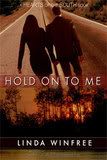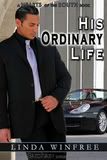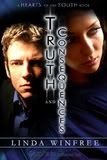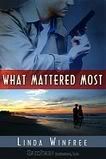White Bread

I spent the weekend in Hollywood with my daughter and her Girl Scout troop of 10 girls ages 10 & 11--we went to Universal Studios with their cookie money.
(Great girls, btw. We had a great time.)
On Sunday, we ventured downtown to Hollywood Boulevard and The Walk of Fame.
I'm going to be a bit non-politically correct here, might even make a couple people mad--just remember this is only my opinion...
I was highly disappointed. Its a very dirty part of the city. And that Hollywood sign, the one in the hills that they show on television all pristine white surrounded by lush mountains, looked about ready to topple over. It was dingy gray against dry, brown hills covered with ragged patches of sage brush.
On Hollywood Blvd, there were so many costumed out-of-work actors/actresses begging for tips after a quick shot of the camera it was like strolling through Tijuana with every merchant promising the best deal, nagging you to buy, attempting to charm you into their store. (And more than one of these wanna-be actors looked like they were out there to fund their drug habit.) There were the music artists snapping headphones over the ears of the unsuspecting tourist to try and get them to take their latest CD for a "donation", the homeless weaving palm leaves into roses and crosses and laying them out for sale over the star's stars.
I weaseled my way out of traipsing through Ripley's Believe It Or Not, The Wax Museum and The Guinness Book Of World Records Museum with the girls, left them to the troop leader and grabbed a soda at McDonald's. There, while I sat amongst the bizarre population of Hollywood Blvd, I realized something -- about myself and my writing: I live a white-bread life, so my characters come out like boring, flat Wonder instead of varied, interesting, rich seven grain loaf.
I used to work in San Francisco--I've seen people from about every walk of life. I'm no stranger to the rich, famous, entitled, selfish, arrogant, deranged, violent, crazy, poverty stricken, homosexual, bisexual, transsexual, disease ridden, anything-goes, trying-to-find-themselves population of big cities. But after a couple hours of people watching over the weekend, I realized that I've been cloistered in my suburbs too long. I need to get out more!
For the life of me, I can't seem to create quirky, interesting characters. I've got my hero's and heroines down, going deeper with my villains, but the rest, those secondary characters or the one scene wonders? Boooring.
What writer do you think does a good job with different characters--the really memorable quirky ones (not necessarily h/h/v)? What are your methods for developing that type of character in your work?
Labels: Joan's posts







10Comments:
I'm not sure quirky always means memorable. I think the key to memorable is "real." For any character, main or secondary or even prop, to come across as real, he or she has to be "real" to the author.
Years ago, I read an article about young adult author S.E. Hinton, in which Hinton talked about how well she knew about her characters and how much of that information never made it into her books. That idea impacted me as a writer, and so I try to "know" all of my characters as much as possible. This means understanding who they are, why they are the way they are, what their GMCs and quirks are, etc. This idea was reinforced when I read Fiction First Aid (author escapes me now) -- the author of that book includes some great examples of how to make secondary and/or prop characters "pop" on the page.
Now, do I write down all of that (GMCs, background, etc.) the way I do for my main characters? Of course not. But I'm thinking about those minor characters when I'm creating them, even envisioning a scene from their POV so I can make them, their actions and reactions more realistic.
Great post, Joan! Can't wait to see other takes on this. :-)
Real Characters- Lula and the grandmother in the Stephanie Plum mysteries. They say what they mean and do whatever they feel.
Of my two published books, everyone that reads them wants to know if secondary characters will have their own book. To me that means my secondary characters touched the readers and I did my job.
And I believe in diversity. Even in the time (Westerns) I write in there was diversity. This country was being built by people from every where.
Keep it real and you have reality for the readers.
I agree with Paty--the characters in the Stephanie Plum books are real. Very fleshed out and they all have their own personalities.
I know I don't always flesh my characters out as well as I could. For a while, I wasn't getting deep enough inside their heads to really know them. I used to interviews with each main and important secondary character, and I'm starting to do it again. I find the better I know them, the less I struggle to keep them true to themselves.
Lin -- good advice. I definitely develop my characters through GMC. Try to have their conflicts, both inner and outer, come organically from their backgrounds, their desires, their fears.
It's not that I don't think they're well developed enough, or that I know them well enough, I just don't think I know how to make them as unique as the general population. Everyone has their quirks, their oddities, their personality issues.
For example, I'm terribly compulsive, but only about certain things--things that hold importance to me for whatever reason. And I'm highly considerate of others-hate missing appts or being late, but when I'm stressed, I'm constantly forgetting things. Instead of getting mad at myself like I would over other similar issues, I sigh and say, "I can only handle so much."
I guess it's the contradictions in people that I'm talking about. And there are sooooooo many!
But maybe I'm focused on things that don't really matter in the realm of writing a 300-400page book.
Paty - I LOVE Lulu and Grandma Moser. I also love Ranger and Stephanie's cousin. Although I think Joe could be more developed.
Those are the type of quirky, memorable characters I strive to create.
Interestingly enough -- they're funny characters, and I envy writers who can write funny. So, maybe my desire to write quirky characters comes from wanting to write funny.
That's definitely something I'm not gifted with and not something I want to kill myself trying to master. I believe there are elements of writing some people have a natural talent for, and one is writing funny.
Dawn,
I too have struggled to get into my characters heads. I've found that the deeper I revise, the deeper into them I get. Each pass at the manuscript tells or shows me something new about my character and I always try to incorporate that new element into my story.
John Irving does quirky so darn well. Stephen King has a knack for making a character come completely alive and interesting in only one sentence, but his characters' quirks feel so real and normal and true--but it still feels like an a-ha moment to the reader.
I also love Erica Orloff's characters. She takes such care with them, never taking the easy road and just making them stereotypes.
I've been thinking about this all day. I think it depends on what you mean as quirky. Honestly, I can't remember a really "quirky" secondary character in an RS I've read recently. Most are dark enough not to lend themselves to really quirky secondary characters. That said, I'm sure there are books out there that include them.
As for yourself, J, if you were a secondary character, I think it would be hard to show your compulsions - unless you have some really odd ones...like a coworker of mine who always had to have all the light switches in her house pointing either up, or all pointing down. She wasn't compulsive about other things, just that. The other thing to keep in mind is that the more quirky your secondary characters, the more space it takes to develop those quirks in your ms. Not that I'm opposed to that, but in a tense RS, long descriptions about quirky secondary characters tends to slow the pace, which is probably why you see more of them in other genres that aren't so pace-sensitive.
As for being white bread...who's your target audience? I don't remember the specific statistics on who reads romance, but I do remember reading a high percentage were college-educated/professional women. IE, pretty white bread themselves. So don't sweat that.
Great topic!
Spy, I haven't read Irving or Orloff, of course I've heard of them both, but I'm a rather narrow reader.
I have read King and while there are a lot of people who don't like him, don't like his work or both, I happen to think his writing has an enviable flavor. That said, most of his work is too ... scary for me. Like Koontz.
E--True, which is what had me wondering if I was concerned about something that couldn't/shouldn't be addressed in the type of books I write.
Very good point about the audience, too, although I'm pretty white bread and always love a quirky character.
Post a Comment
<< Home